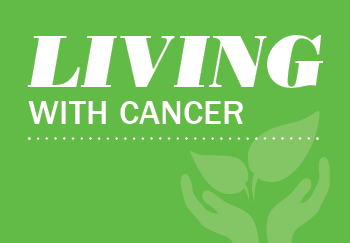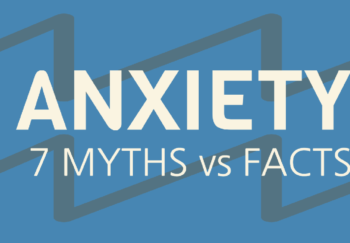 As many as 28% of all cancer patients experience anxiety at some point in their cancer journey, according to a study in the European Journal of Cancer Supplements. Whether you’ve just been diagnosed, are undergoing treatment or are adjusting to living life after cancer, you may be experiencing anxiety.
As many as 28% of all cancer patients experience anxiety at some point in their cancer journey, according to a study in the European Journal of Cancer Supplements. Whether you’ve just been diagnosed, are undergoing treatment or are adjusting to living life after cancer, you may be experiencing anxiety.
While anxiety among cancer patients, families and survivors is common, some people experience a more frightening form of anxiety. Panic attacks can profoundly lower your quality of life. There are several methods of dealing with attacks, and some might help prevent these debilitating episodes from occurring.
How Panic Attacks Are Different From Regular Anxiety
Almost everyone will experience anxiety at some point in his or her life. It’s normal to feel anxious while you’re dealing with cancer, but when anxiety becomes overwhelming, it’s a panic attack.
Panic attacks are intense, sudden episodes of overwhelming fear. During a panic attack, you may feel like you’re being smothered, having a heart attack or even dying. Panic attacks can occur at any time, and, if you’ve had a panic attack, you may be worried about the possibility of having another, says the National Institute of Mental Health.
Usually, panic attacks happen suddenly, reaching their worst levels within 10 minutes, according to the American Cancer Society. There are several common symptoms of panic attacks, including:
- Chest pain or discomfort
- Racing or pounding heartbeat
- Shortness of breath
- Feeling like you’re being smothered
- Feeling lightheaded, dizzy or like you will faint
- Excessive sweating
- Shaking or shivering
- Stomach pain and nausea
- Feeling a numb or tingling sensation
- A feeling like you have to escape or get out
- A feeling of doom
Dealing With Panic Attacks
Even though these attacks usually only last a few minutes, the fear of having another episode can linger well after it’s over. You could be worried about how to manage them and if you need to seek professional help.
Fortunately, there are many tips for dealing with panic attacks that could also help to prevent future episodes from occurring. The first step is being able to recognize the common symptoms of panic attacks and realizing that one is starting. Then, you can focus on simple breathing and other relaxation techniques to let you get control back.
Slow, deep breathing and focused, progressive relaxation of your muscles can both help you achieve a calmer state of mind. It’s also useful to exercise during an episode. It doesn’t have to be anything too strenuous — simply taking a walk around your neighborhood can do wonders for your state of mind. Other exercise, like yoga, can be beneficial for promoting relaxation and calm.
To prevent future panic attacks, many people find success with cognitive behavioral therapy, which can help teach you to think differently and react in a new way to the feelings that you might experience. Along with this type of psychotherapy, certain medications can help prevent these episodes from occurring. Talk with your doctor about any medications you’re already taking, especially during the course of your cancer treatment, since some medications can interact with others.
Your life doesn’t have to be defined by cancer, and it doesn’t have to be defined by panic attacks. By educating yourself on the common symptoms, you’ve already taken the first step in dealing with anxiety so that they don’t affect your life as severely. By working with your healthcare team, family and other caregivers, you can better manage your attacks and maybe even stop them from happening at all.

